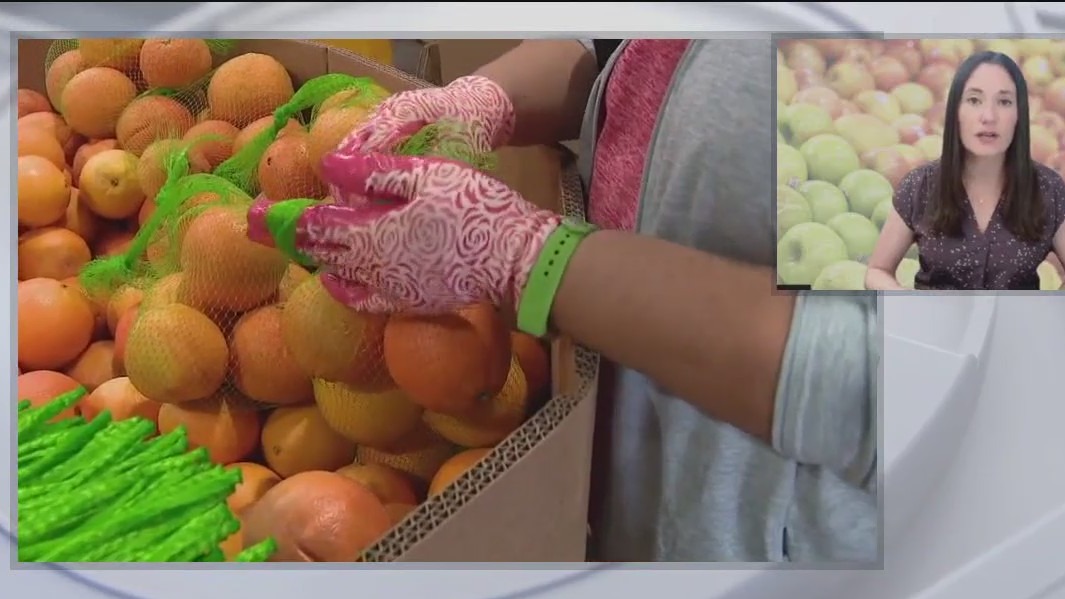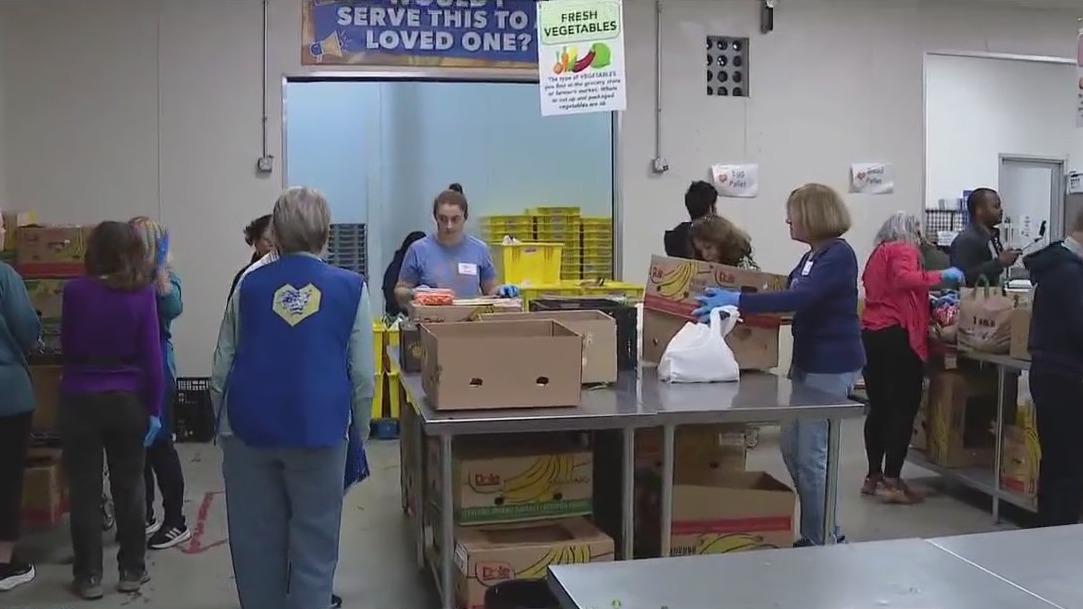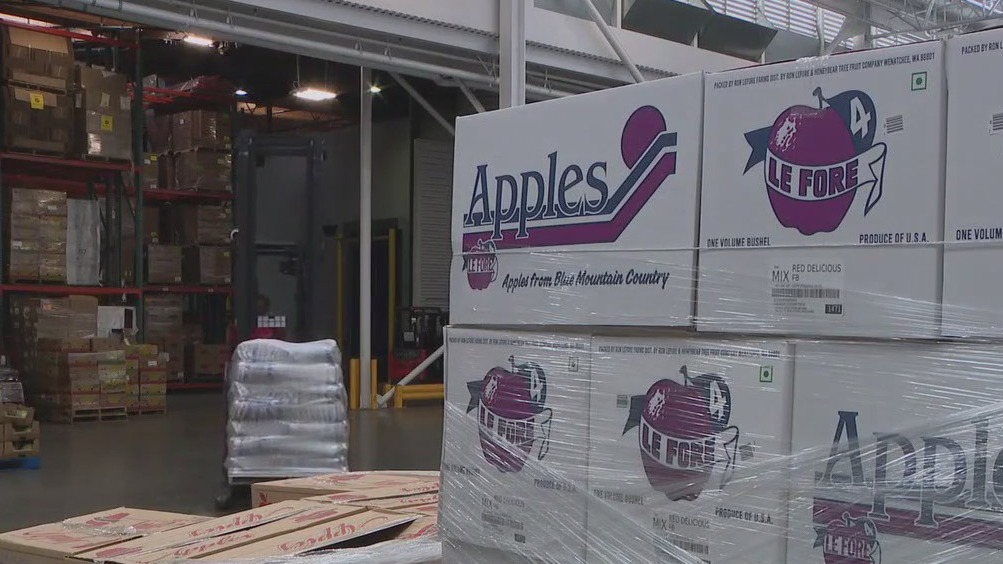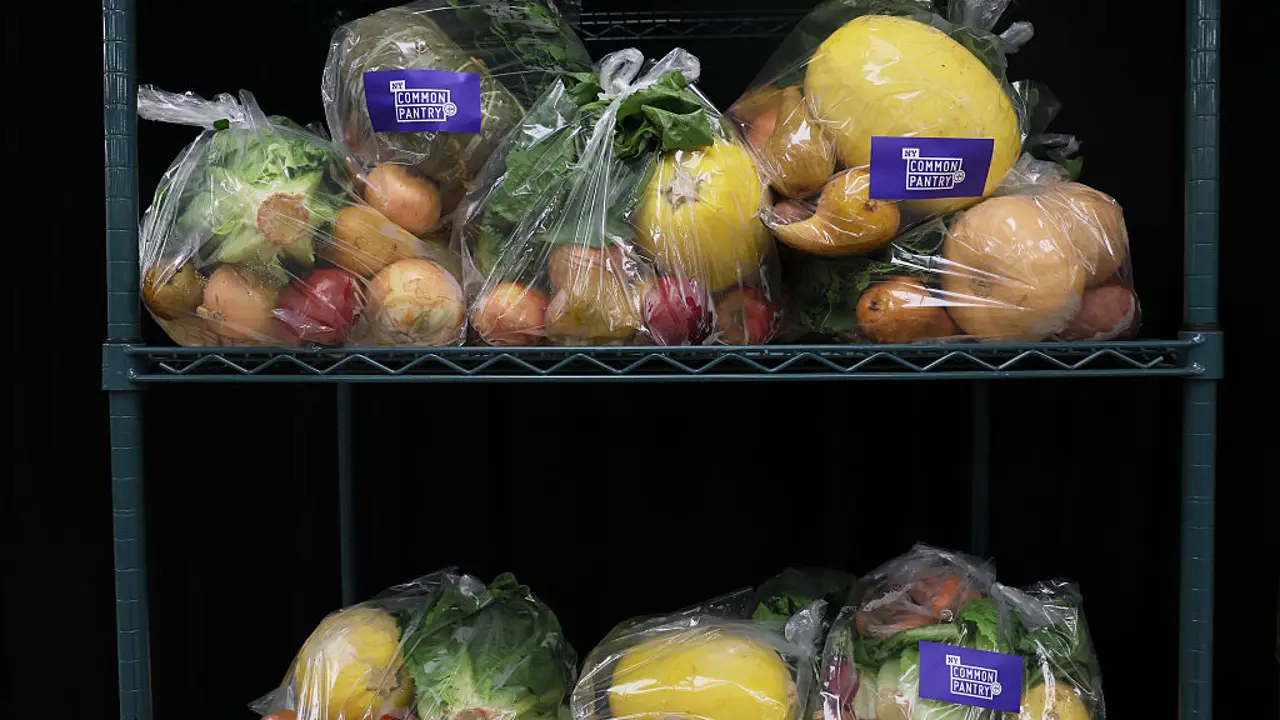
CONCORD, Calif. – The clock is ticking for the 42 million Americans who rely on federal food benefits as the government shutdown drags on.
The U.S. Department of Agriculture says it will run out of money to fund the Supplemental Nutrition Assistance Program — or SNAP — by Saturday if Congress does not act. The program provides monthly food benefits to low-income families and individuals across the country.
Some of the nation’s most vulnerable people depend on SNAP, including more than half a million residents in the San Francisco Bay Area. Nearly 40% of recipients are children, 20% are seniors, and about 10% are people with disabilities.
Senate Democrats introduced a bill this week to continue funding SNAP during the shutdown, but the measure failed to pass, leaving millions uncertain about how they will afford groceries in the coming days.
‘As prepared as we can be’
“We are as prepared as we can be,” Food Bank of Contra Costa and Solano CEO Caitlyn Sly told KTVU on Thursday. “I think we are prepared. We will step up. Our food bank has been in this community for 50 years and we will continue to be there for the community for another 50 and as long as people need us.”
She said her food bank is already bringing in additional food, ramping up distributions and preparing for the increased need that will start on Saturday, after the Department of Agriculture posted on its website that the SNAP benefits will end Friday. “Bottom line, the well has run dry,” the statement read.
Vulnerable families could see federal money dry up soon for some other programs, as well — from certain Head Start preschool programs to aid for mothers to care for their newborns through the Special Supplemental Nutrition Program for Women, Infants, and Children, known as WIC.
Another group at risk from the shutdown — members of the military — won’t miss a paycheck on Friday, as the Trump administration plans to tap existing accounts to cover their payroll.
 Lawsuits over SNAP
Lawsuits over SNAP
Almost two dozen states, including California, have filed a lawsuit arguing that President Donald Trump’s administration has the money to continue the benefits and is legally required to do so. Senate Democratic leader Chuck Schumer said that SNAP benefits have never stopped during previous government shutdowns and that Trump is “picking politics over the lives of hungry kids.”
Republican leaders, in turn, blamed Democrats. The solution, they said, was for Democrats in the Senate to allow for passage of their short-term funding patch that has so far failed 13 times in that chamber.
People who serve the hungry are not focusing on blame. They’re focusing on how to help.
“Ever since this announcement went out that SNAP benefit will be cut off, we’ve had our phones ringing off the hook with hundreds of calls every day,” Sly said. “How do you screen the people who receive your help? If somebody needs food, and they say they need food, they can come and get food. We really want to be open to anyone that is struggling to make ends meet, whether that’s older adults, people with disabilities, families with children, anyone that needs our help.”
Many people in the Bay Area want to help and have offered to volunteer, Sly said, which is great.
But she said that the best way to help is to donate money because food banks can stretch the dollar further by buying truckloads of food and produce.
 San Francisco, Concord, Marin
San Francisco, Concord, Marin
There are an estimated 112,000 people in the city of San Francisco who receive SNAP benefits, and Mayor Daniel Lurie said on Wednesday that the city won’t let them down. San Francisco partnered with the Crankstart Foundation and will be using $18 million to support San Franciscans facing food insecurity.
In addition, San Francisco’s Human Services Agency said the city is rushing to mail out cards SNAP recipients can use to shop for food. And the San Francisco-Marin Food Bank is also partnering with the city.
In Concord on Thursday, workers were busy at the White Pony Express, a nonprofit aimed at eliminating hunger and poverty.
CEO Eve Birge said she’s already seeing longer lines at the 105 pantries her food bank delivers to. And she acknowledged that these vulnerable people will likely be scared, confused and angry.
“Many of these community members are not going to know where their next meal will come from,” she said. “We already had a hunger crisis this month. It is incredibly important for all of us to lean in and help our community.”
For more information, here is a list of food banks and restaurants helping out during the SNAP shutdown.

